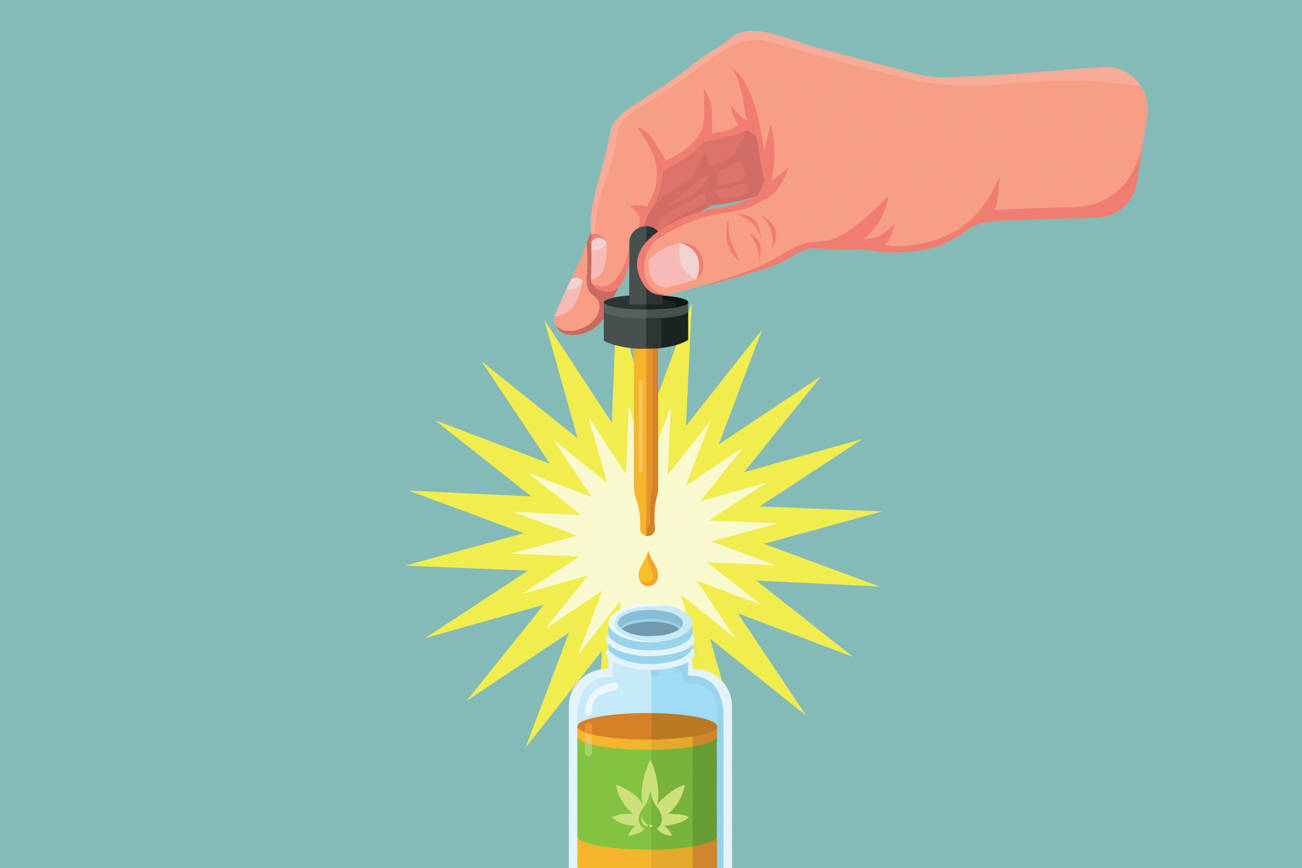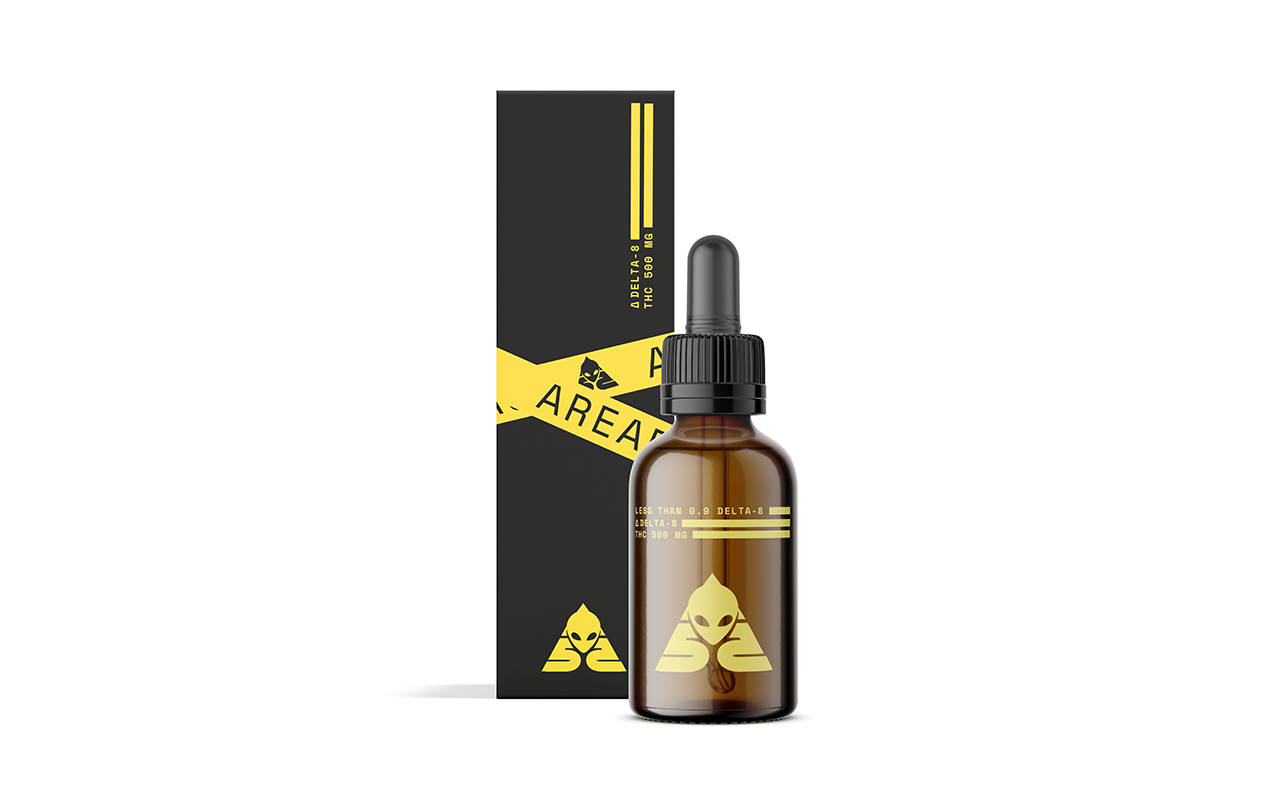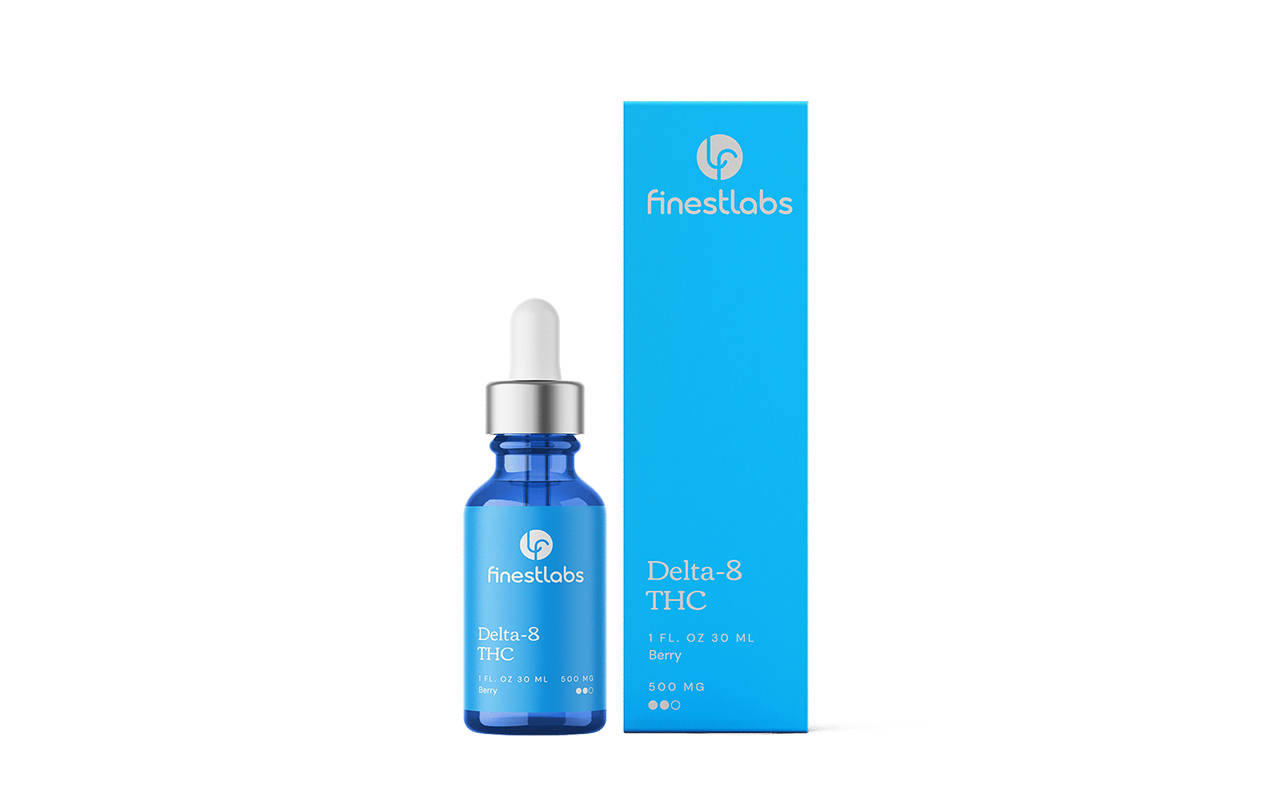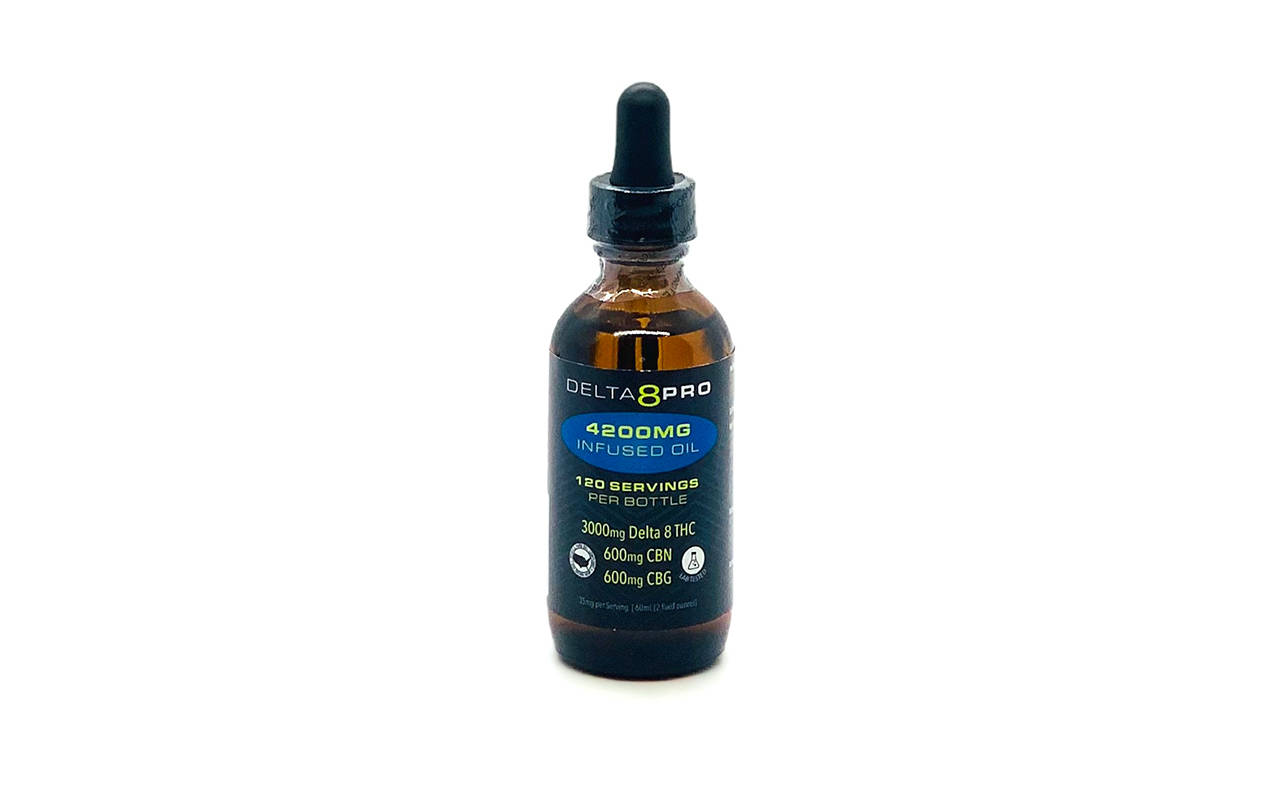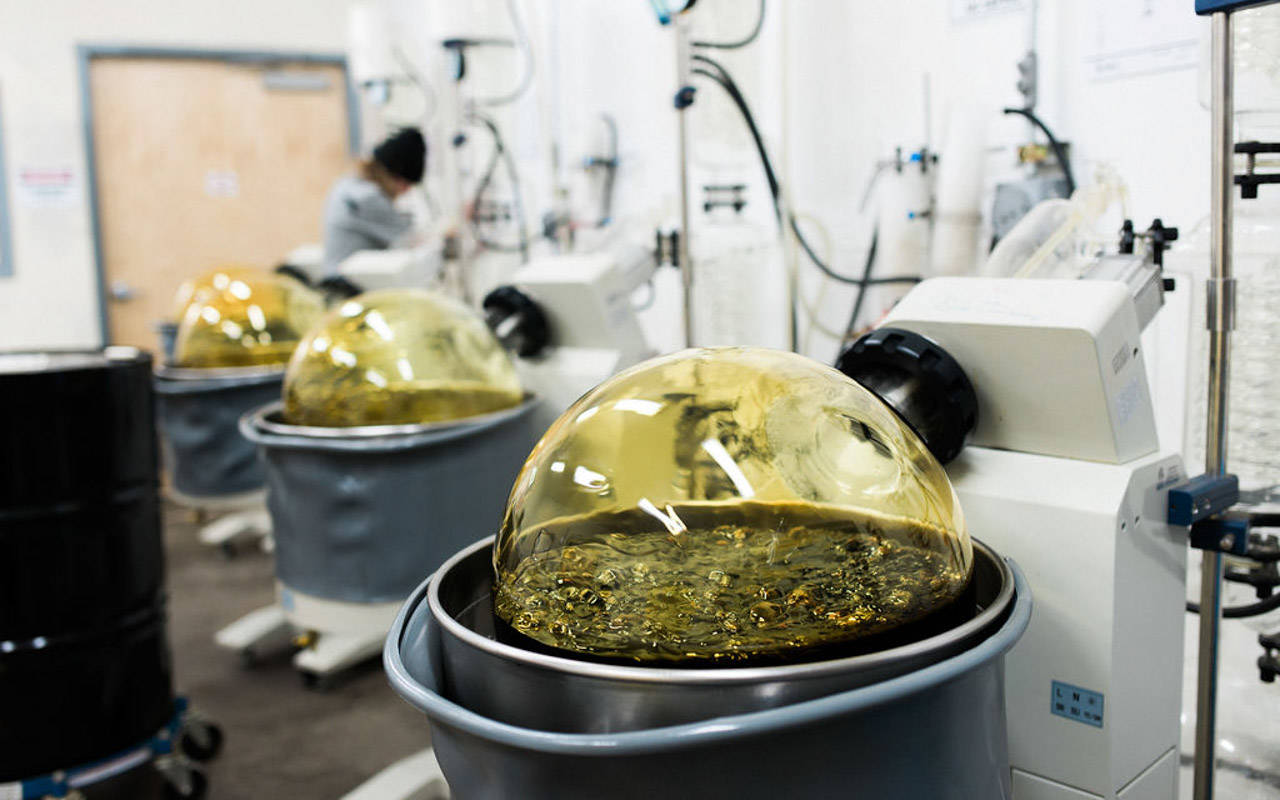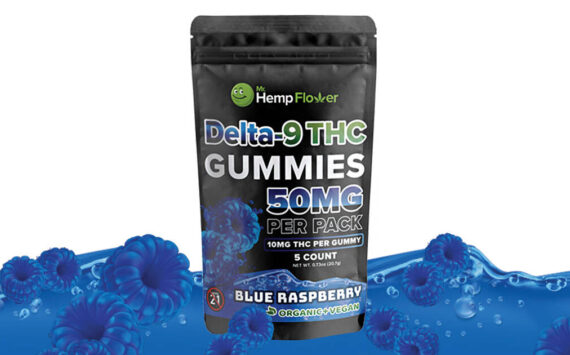We witnessed the hype CBD has created throughout the years, but now it’s time to introduce a new (to some totally unknown) cannabinoid that’s been making waves in the cannabis industry. Delta-8-THC has been gaining in popularity these days due to its mildly psychoactive effects and (somewhat) legal usage across the US. But just like in the case of CBD, knowing the benefits, drawbacks, and, more importantly, how cannabinoid-based products are made is a must if we want to enjoy the full effects without causing ourselves any harm. Luckily, we’ve done the bulk of the research for you and found the best delta-8-THC tinctures the market has to offer today!
Top 3 Best Delta-8-THC Tinctures in 2021
Lack of regulations and quality standards has allowed shady vendors to offer their delta-8-THC tinctures, vape cartridges, and edibles to unassuming users. We’re here to prevent you from making a mistake you may regret later on and instead suggest products that have been vetted by our team.
Yes, the market is still small, so we didn’t have many brands to consider. However, after going through user reviews, testimonials, and third-party lab reports, we’ve narrowed it down to three brands: Area52, Finest Labs, and Delta 8 Pro.
1. Area52
First up is Area52, a company that specializes in creating reliable and safe delta-8-THC products without cutting corners when it comes to transparency.
The tincture industry experts like Observer deem to be one of the most potent options on the market is made with quality in mind. It all starts on Colorado farms — that’s where the brand sources its ethically grown hemp. Then, the process continues in production, where the company uses CO2 extraction to acquire the most potent and pure extracts.
To ensure its tincture is not only beneficial but actually tastes good, Area52 uses broad-spectrum extracts and a natural terpene blend to give the tincture a soothing and delicious vanilla flavor. To improve efficiency and absorption, it also adds some premium MCT oil, as well as some stevia to give it a nice, sweet kick.
The resulting tincture offers 1200 mg of delta-8, with each milliliter yielding 40 mg in total. To prove these results, the company opts for third-party lab analysis, in which it tests its tinctures for potency and purity. The results also show the delta-9-THC content, which shouldn’t go over 0.3% (as per the 2018 Farm Bill).
Pros:
- Highly potent, offering up to 40 mg of delta-8 per milliliter
- Natural vanilla flavor and stevia instead of sugar
- Rigorous third-party testing is done in independent labs
Cons:
- Only one potency option and flavor available so far
2. Finest Labs
For those who haven’t had a chance to use delta-8-THC before, Finest Labs has a tincture that’s perfect for beginners. Offering 500 mg of delta-8, the product shouldn’t overwhelm you when you start using it but instead mellow you out ever-so-slightly, thus avoiding any severe reactions.
Of course, it’s a matter of time until you build your tolerance, so this may not be the be-all and end-all for you. For those who are already into delta-8, it may prove to be a bit lackluster too, not to mention expensive, if they favor higher doses.
Still, if we want to microdose delta-8-THC, this tincture would let us do so safely. After all, the company has made sure to invest in third-party lab analysis to give us the peace of mind we all need when looking into any cannabinoid products.
Pros:
- A good option for novice users who want a lower-potency tincture
- Uses unflavored delta-8 distillate in combination with MCT oil
- Third-party lab-tested
Cons:
- Unless we’re into micro-dosing, it may not be so cost-effective
3. Delta 8 Pro
Delta 8 Pro has been in the industry since 2008, so it’s fairly certain the company knows how to make quality products. Unsurprisingly, its delta-8-THC tincture has earned high praise among users — and how could it not when it offers 3000 mg of the compound per bottle?
Now, what we love about this tincture is that it’s not made with delta-8 only. To spice things up a bit, the company added 600 mg of CBN and CBG too.
Each of these compounds boasts different benefits. For instance, CBG has anti-inflammatory, as well as pain- and nausea-relieving properties, and it also supports the effects of other cannabinoids. CBN, on the other hand, boosts sedation, lulling users into relaxation without much effort whatsoever.
One thing to note, though, is that this tincture may be overkill for some users. The combination of delta-8, CBN, and CBG may have a too powerful sedative effect for daytime use. Despite the potency being similar to the other brand’s products (35 mg per 0.5 ml), it’s this blend that could render us useless, especially if we take too much.
Pros:
- A powerful combination of delta-8, CBN, and CBG
- A whopping 3000 mg of delta-8 per 60 ml bottle
- Third-party lab-tested (results available on the website)
Cons:
- It could result in intense sedation
Discovering Delta-8-THC
As an isomer of delta-9-THC (the form of THC we’ve all heard of), delta-8-THC boasts an almost exact structure as its close cousin. The main difference is in the double bond that each has on its chain of carbon atoms. In the case of delta-9, it’s located on the ninth chain, whereas delta-8 has it on the eight — hence the names.
As tiny as this structural difference may seem, it plays a huge role in making delta-8 less potent than delta-9. We can achieve the same high with both, but we’d have to take double the amount of delta-8 to match the intensity of delta-9.
Yet the real benefit here is that even at that point, it’s unlikely that delta-8 would trigger paranoia and anxiety. These side effects are something that makes most users stay far away from delta-9 at all times.
On the other hand, delta-8-THC can still be detected on a drug test. The tests aren’t designed to differentiate between delta-9 and delta-8, so both can trigger a positive result.
How Do We Get Delta-8?
Cannabis plants don’t synthesize this cannabinoid naturally. Instead, we can only get it in trace amounts once delta-9 degrades to cannabinol (CBN).
This did put brands eager to market their offering in a bit of a pickle. It was impossible to get enough delta-8 to actually produce good products.
Science came to the rescue, though. Through a series of breakthroughs, we discovered a special process through which we can convert cannabidiol (CBD) into delta-9, and from there, convert delta-9 into delta-8.
Clearly, this makes the whole production that much more expensive, not to mention dangerous, as it calls for the use of toxic chemicals. What’s more, the semi-legality of hemp and marijuana doesn’t help either, as producers are mostly limited to using hemp plants and ensuring they don’t breach the legal threshold of products containing 0.3% or less delta-9-THC.
Potential Side Effects
At the time of writing, we don’t have any proof that delta-8-THC is toxic to people or that it could even lead to fatal overdoses. The compound should boost the user’s mood, making them slightly euphoric, and offer stress and pain relief.
Of course, some side effects do exist. But they aren’t linked to delta-8 itself as much as they boil down to subpar production.
Yes, overloading with delta-8 may result in some side effects similar to those CBD generates, such as dry mouth and eyes, fatigue, dizziness, motor function impairment, higher appetite needs, and concentration problems. But the consequences of using delta-9 are much greater, as they’re linked to increased heart rate, anxiety, and paranoia.
The greatest worry regarding delta-8 is impurity. While trying to reduce their costs, companies may cut corners by using poor-quality ingredients, synthetic additives, or contaminants. This puts the final product at risk of being unsafe for use, as residual hazardous compounds, such as bleaching agents and low-quality solvents, may remain in it if they’re not purged properly.
A huge problem in the industry is the idea that the tincture should be transparent. This makes brands bleach their products to remove the natural pinkish color of delta-8 distillate. That’s one of the ways to know whether a product is good for you or not. Still, we always recommend going over the third-party lab results to detect any issues.
How Legal Are Delta-8-THC Tinctures Exactly?
The 2018 Farm Bill changed the cannabis industry forever, making it possible to use hemp to produce various cannabinoid-based products. Hemp was no more a controlled substance and was made legal on a federal level. Now, brands can use it for their products as long as they meet some strict requirements. One of the crucial ones is keeping the level of delta-9-THC at 0.3% or lower.
That also makes delta-8 legal across all 50 US states since brands use hemp to obtain their extracts. However, the Drug Enforcement Administration seemingly views all tetrahydrocannabinol varieties the same way and calls them illegal. This stems from its belief that all products that contain tetrahydrocannabinol are synthetically extracted. And yet, this isn’t true, as the extraction methods brands use to obtain delta-8-THC aren’t synthetic.
But alas, this means that the legality of delta-8 mostly depends on the DEA’s interpretation of the law and the laws each state has the right to impose. A dozen states, including Arkansas, Arizona, Idaho, Iowa, and the like, have already banned delta-8. So we could easily say that this is a clear case of misjudging production processes and playing into the cannabis taboo — something we should have already overcome.
Unless stated otherwise by state law, we can also only use delta-8 if we’re 21 years of age or older. We mustn’t take it if we will be driving or operating heavy machinery, though, as it can get us high.
Using Delta-8-THC Tinctures: Usage, Kick-In Time, and Proper Dosing
Delta-8-THC tinctures are pretty much similar to CBD tinctures in that we use them the same way — sublingually. The bottles come with droppers so that we can measure out the dosages before placing them under the tongue and holding them there for about 60 seconds.
Both types also consist of fairly similar ingredients (apart from the main active one). In the ingredient lists, we can often find carrier oils, such as hemp seed oil, MCT oil, and vegetable glycerin. To improve the taste, some brands even opt to add natural flavorings as well.
The purpose of carrier oils is to improve bioavailability, as delta-8, much like all cannabinoids, is fat-soluble. However, it’s possible to use alcohol, too. In the grand scheme of things, though, that may prove inefficient if a brand is looking into extensive production.
In terms of keeping the tinctures safe to use, we recommend storing them in a dry and dark area. They should be kept away from humidity, light, and heat. That way, we can prevent delta-8 from degradation, as well as avoid bacteria and fungi growth
Figuring Out Our Perfect Dosage
We should always consult a doctor before taking the tincture, especially if we aren’t sure about the dosage. Also, it’s crucial to remember that if we are using any other medications, using delta-8 may result in unfavorable interactions. The doctor may therefore advise us against it.
As for the optimal dosage, it is anywhere from 10 mg to 60 mg. But it all depends on our tolerance to the compound, weight, age, sex, and even when we’re taking it — whether it’s after a meal or on an empty stomach.
For milder psychoactive effects, the 10 mg dosage seems to be the right option for most people. If you don’t notice an improvement, though, never up the dosage too much. It’s best to increase it by 5 or 10 mg until you get the desired results. Otherwise, a delta-8 overload may trigger various uncomfortable side effects.
Also, keep in mind that it’s possible to build a tolerance to delta-8-THC, and pretty fast, at that. It takes less time than with delta-9; with everyday use, we may notice we aren’t reacting to it the same way in as little as a month.
But after a week-long break, the tolerance should decrease. Either way, it’s best to practice moderation and take lower doses.
Alternatively, we don’t have to use the tinctures every day. By taking them every other day, we should slow down the tolerance buildup.
How Fast Can We Feel the Effects?
Since the tincture travels through mouth capillaries, we can expect a somewhat faster onset than it would be when using other forms of delta-8 products. But unlike with CBD tinctures, which take roughly 15 to 20 minutes to feel their effects, delta-8 makes us wait for about an hour/hour and a half to notice any changes.
The Best Delta-8-THC Tinctures: 2021 Buyer’s Guide
Now that we know more about delta-8-THC, let’s see what we can do to ensure we make an informed choice when buying our tinctures. In general, the decision comes down to:
Opting for Formulas With Only a Few Quality Ingredients
Organic hemp is always a plus, especially when combined with sophisticated extraction methods, such as the CO2 one. But overall, the tincture formula should consist of only a few ingredients — the distillate, the carrier oil, and any natural flavorings that may boost the taste a bit.
Buying Tinctures From Expert Companies
The CBD to delta-9 to delta-8 conversion is a tricky process that requires lots of skill and knowledge. Since some manufacturers don’t have that, they often don’t know how to properly purge the toxic chemicals used in the process. Even worse, some may even compensate for it by bleaching the distillates to make them seem pure.
Remember that the tincture should be mostly transparent but still have a hint of pink to it. If it doesn’t, i.e., it’s completely transparent, the use of bleaching agents is all but guaranteed.
One way to know if a company can be trusted is through doing research. We should look into user reviews and testimonials on third-party websites. These usually offer unbiased insight that the company hasn’t manipulated with.
What’s more, the company’s transparency plays a key role here, as buyers should have access to third-party lab results. If they don’t, or even worse, the brand doesn’t analyze its products, that’s a huge red flag!
The point of the analysis is to show us how much delta-8-THC is in the product. It should also detail the cannabinoid profile and give information about any contaminants, residual solvents, etc. In short, without it, we don’t know what we’re taking.
Investing in the Tinctures — and Not Just Looking for the Best Deal
Finally, even though some users have tight budgets, remember that producing delta-8-THC products is no easy feat. It requires skill, time, effort, knowledge, and money to make natural delta-8 tinctures. Thus, they may come at premium prices now, given that the market is still small and unexplored. In the future, we may notice the prices going down, making delta-8 affordable for everyone.
Final Thoughts
Brands such as Area52 and Finest Labs are famous in the industry for making some of the best delta-8-THC tinctures. What’s more, they’re not afraid to prove the quality by testing their products in independent labs, making them the beacons of transparency in the industry. Still, even with thorough research, caution is advised, as a delta-8 overload could lead to increased tolerance and side effects. Going beyond that, it’s best to consult a doctor beforehand; they’ll be able to guide you throughout the whole experience by not only helping you dose the tincture right but also avoid any unwanted side effects and interactions with other medications.
